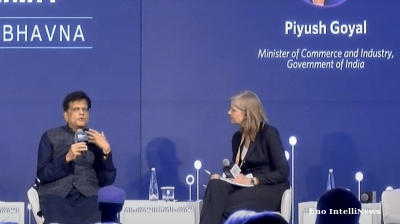Hungarian families are being squeezed by Europe's fastest-rising living costs, according to a rare and striking report aired over the weekend by CGTN, the international arm of China’s state-controlled media.
Despite warm relations between Beijing and Budapest, the segment offered a candid look at the financial strain faced by households, hit by Europe's highest food inflation in the last five years.
Titled "Tough choices for Hungary families as cost of living skyrockets", the CGTN piece followed a mother-of-three, a single parent in Budapest, whose grocery bill has doubled in just two years. "I have to count every single cent to make it to the end of the month," she said.
The CGTN report also included commentary from economist and former central bank governor Peter Akos Bod, who warned that Hungary faces a unique combination of persistently high inflation and a stagnating economy.
"There has been no economic growth over the past two years," Bod noted, underscoring a malaise that continues to weigh on household finances and consumer confidence.
Particularly striking was CGTN's inclusion of criticism surrounding the government’s price cap measures, independent outlet 444.hu adds.
To rein in food inflation, the government introduced a temporary 10% markup on profit margins in mid-March, covering 30 essential staples, or roughly 1,000 products. Officials have blamed greedy retailers for inflation prices, but experts warned the surge in Hungary’s food inflation is largely a structural issue, ranging from a number of factors, from high taxes to the lack of competitiveness of agribusinesses and food industry.
The country's largest food retailers warned that extending the measure beyond the May deadline could have serious repercussions. Spar said the cap on margins costs the company HUF1.5bn (€3.7mn) every month.
Analysts cited in the report argued the policy risks exacerbating shortages and hurting small businesses, while doing little to tackle the root cause of food inflation.
Hungary has the highest year-on-year inflation rate in the European Union, 5.6% in February 2025. Over the past five years, food prices have jumped 80%, which is roughly two-fold above the EU average, Chinese viewers learned from broadcast.
The news segment concluded with a sombre reflection: "As food prices rise, many Hungarian families wonder how much longer they can afford to keep up."
The story in Chinese media stood out not only for its content but also for its origin, offering a broader perspective than what Hungarians typically receive from their own government.
As 444.hu noted, the outlet, the English-language mouthpiece of the Chinese Communist Party, rarely criticises allied governments. This makes the report all the more remarkable: a Chinese state broadcaster highlighting Hungary's cost-of-living crisis and economic stagnation, issues that pro-Orban media often downplay or ignore.
News

Tajik opposition files international lawsuit accusing government of crimes against humanity
Court decision likely years in making.

Azerbaijan's central bank halts disclosure of FX auction results
Decision reduces transparency around FX operations that were previously disclosed every Tuesday and Thursday.

Five Polish presidential candidates excluded from TV debate after final list of 13 contestants published
Poland’s National Electoral Commission (PKW) confirmed the final list of 13 candidates who will compete in the May 18 presidential election, but a scandal broke out after five were excluded from a presidential TV debate.

Polish opposition slams “brutal” Tusk for revoking broadcaster licence
The Polish opposition slammed Polish Prime Minister Donald Tusk for riding roughshod over freedom of speech principles after a Warsaw court revoked the licence of the TV Republika and wPolsce 24 independent conservative broadcasters.




